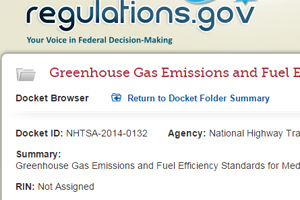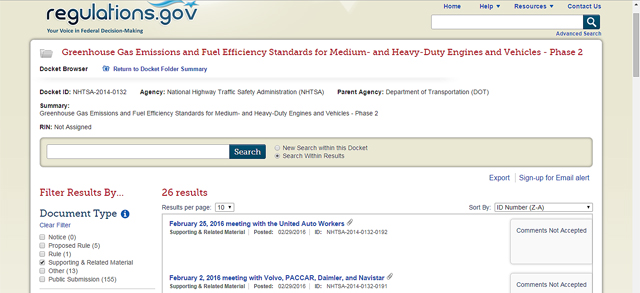Senior Reporter
Phase 2 GHG Emissions Regulation Documents Released

The Federal Register posting March 2 also includes a legal policy memo and results of engine tests. The regulation is expected to be issued in late summer.
The documents include:
• An EPA “legal memorandum” refuting claims by manufacturers that the agency is not authorized to establish emissions standards for air pollutants emitted by trailers, glider vehicles and glider kits.
• Summary of a Feb. 2 meeting among executives of Volvo, Paccar, Daimler and Navistar with Department of Transportation and National Highway Traffic Safety Administration officials. The meeting included discussions on truck maker perceptions of challenges with the upcoming Phase 2 rule.
• A memo outlining “additional discussion” of selective enforcement audit and confirmatory testing for aerodynamic parameters for combination tractors and trailers.
• Details of a Jan. 8 meeting with EPA, NHTSA and California Air Resources Board officials to discuss the potential for “harmonizing” medium- and heavy-duty fuel efficiency and greenhouse-gas standards.
• Effects of tire rolling resistance on Class 8 tractor-trailer stopping distance.
• Report from a Dec. 18 meeting among DOT and NHTSA officials and Cummins Inc. to discuss what the engine maker regarded as the most important issues it faces in meeting Phase 2 standards and its customers' wishes.
• Supplemental aerodynamic data from EPA testing.
• Oak Ridge National Laboratory powertrain data.
“Several of the documents involve finalization of studies that had been under way for quite some time, and documents involving various modeling concerns that were heavily influenced by truck and engine manufacturers’ input and concerns,” said Glen Kedzie, environmental affairs counsel for American Trucking Associations.





